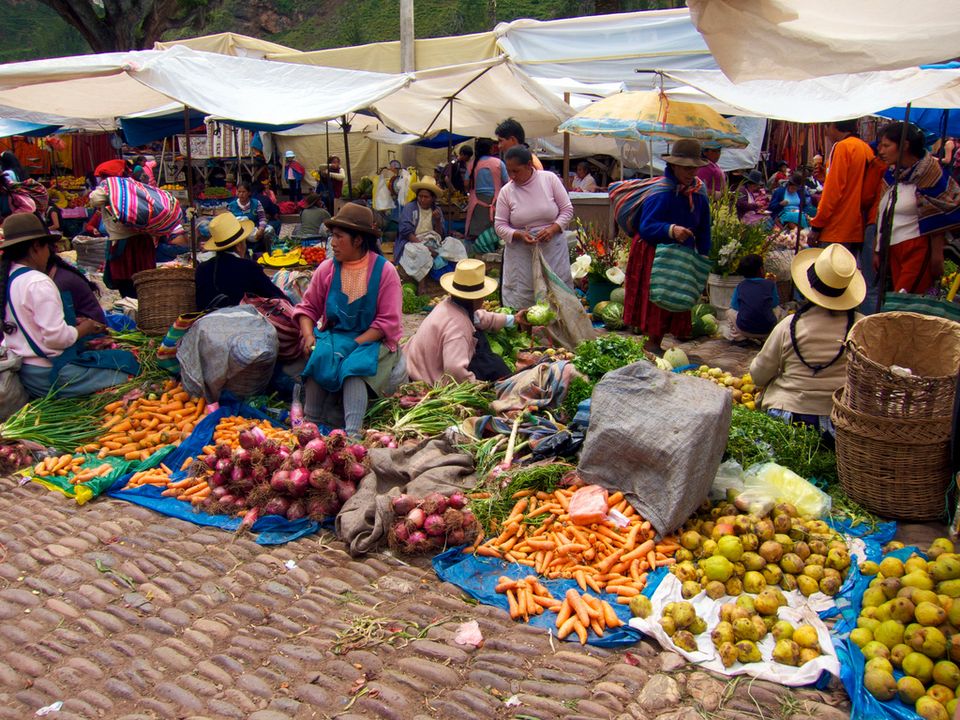We are motoring away from Kwadjokrom in a red dugout boat and I have stopped crying. In the heat of the sun I smell like the road, the fine dust gritty between my teeth as I clench and unclench my jaw, trying to work out my shame at my outburst on the road from Kijiji.
Kijiji is a market just beyond the Western bank of Ghana’s Lake Volta, on whose waters thousands of slave children labor. At three or four years old, just weaned from their mothers’ breasts, they come to a lonely life of work and hunger. The fishermen who buy them are often child slaves themselves, grown up on the lake, set free at seventeen or eighteen years old to fend for themselves. At Kijiji, the masters’ wives sell the fish from the children’s nets, and this afternoon we walked in the sun among those market baskets, their mouths full to overflowing.
I am in Ghana on behalf of a U.S.-based non-governmental organization that partners with Ghanaian anti-trafficking leaders to rescue these children. One of my Ghanaian colleagues is sitting at the helm of the red dugout boat, calling to the boatman who guides our craft through the clutter of Kwadjokrom’s shore-docked fishing boats. The boats are shaped like thin moons, each end tipped up, and their wooden flanks are painted with David and Goliath, the Good Shepherd, and the Rainbow and the Dove. We are on our way from Kijiji to a fishing island, where a fisherman has promised to give up a little boy he keeps.
Yet as we push out, my thoughts are of Seattle, Portland, Las Vegas, Los Angeles, black map dots that rise in my mind with the rhythm of a dull heartbeat. I have no reason to think of those cities while I am here in Ghana, except that they mark for me the trafficking route of a friend, and I have seen Kijiji.
It does not make sense. It did not make sense half an hour ago on the road from Kijiji, when the old man sitting behind me in our rickety trotro asked, through an acquaintance’s translation, why was I so angry?
I did not realize that I was shrieking in the trotro’s cramped cab, holding forth in a language that only three of my traveling companions could fully comprehend.
“Using Craigslist is like buying a coach class ticket on the upper deck of a slave ship,” I think I yelled. The old man was perplexed. “They sell thousands of kids in sex trafficking and prostitution and they could care less!” He did not get that either. “Everyone who buys a used couch knows what’s happening in the ‘adult services’ section and doesn’t care!”
At this point, one of my English-speaking companions yelled back, in near-equal force, that I should zip it. He was right. I turned in my seat to face the front of the bus and the rutted, dusty road leading up to the lake. I was crying now, less from the reprimand and more from the map of the cities I had remembered. I brought my handkerchief up to wipe my forehead and nose and then I held it to my mouth.
It was nearly five years ago that I met the woman whose life is in that map of Seattle, Portland, Las Vegas, Los Angeles. I was newly married and newly arrived in the third of four cities my husband and I would call home that year. I was teaching literature at a university, but I wanted to keep a hand in the anti-trafficking community, so I signed on for the first meet-up of Polaris Project’s Seattle chapter. When I arrived at the meet-up, she was there, too.
I know what it means to be lonely. I know the delicate aspect it brings to a person’s face and the white cast it brings to the eyes and skin. I know less well how to bear up under my own loneliness, whenever and why-ever it arrives. When I see the kind of fortitude that I lack alive in someone else, I mark it. I know I will need that memory.

When she was fourteen, her father left. Her mother followed. Improbably, she was left alone in blue-collar suburban Seattle, where she was found by an older boyfriend-cum-savior-cum-pimp. She was beaten, raped, and sold on the streets and on the Internet. She was cut, branded, and thrown out of moving cars. The West Coast circuit – Seattle, Portland, Las Vegas, Los Angeles – was her pimp’s bread-and-butter. When she became pregnant by him with a second child, she took her two-year-old daughter and fled.
It is hard to befriend a woman who grew up in the rigged world of a “stable” – a slang term for the women that a pimp owns, exploits, and uses to exploit each other. A woman who has known this life wants to love and to be loved, but she does not believe that love can be given freely.
When my husband and I moved to Washington, D.C., my friend and I kept in touch for a while. Once when I called her apartment, I got a drunken woman who told me that my friend and her daughters had been kicked out. I begged for another number and the woman gave me the line for a motel room, where my friend answered once and a man, whose voice I did not trust, answered a second and final time.
These days, Facebook cuts short the romanticism of myriad lost loves and lost friendships, sometimes for the better. I looked for my friend on Facebook last year, sometime in the wake of the Boston Craigslist murders, when the National Center for Missing and Exploited Children, Polaris Project, and several U.S. Attorney Generals rallied – and ultimately lost their battle – to stop human trafficking via the Craigslist erotic services (now “adult services”) section.
In the midst of the brouhaha, I found my friend. Her Facebook profile was meager and her wall was a strange slate of auto-generated messages, but this seemed in some way fitting for all the abuse she had experienced in the world of mid-nineties Internet.
Knowing what she had overcome, I understood what my friends and colleagues were after in their campaign to clean up Craigslist. I was not sure that attempting to reform an online kingpin, especially one who had no natural impetus to do so, was the best way to do it.
I stumbled on to Kijiji – www.kijiji.com of eBay, rather than Kijiji of the Kwadjokrom overbank, the red dust road, and the market where women sell fish caught by slave children – sometime during those months. I talked to a few colleagues about what it might look like to stage a kijiji.com “other-cott” and steer like-minded friends toward an online classifieds site that chooses, of its own accord, to entirely prohibit the “adult services” ads that make Craigslist a haven for human traffickers.
But the other-cott did not go anywhere. Or, to rephrase, I did not take it anywhere. I do not know why.
What I do know is that today on the road from Kijiji, someone mentioned Craigslist. I was thinking of my friend, I remembered how many thousands of boys, girls, women, and men like her had been sex trafficked on Craigslist, and without counting the cost, I began shrieking incoherently and obnoxiously about slave ships and sins of omission.
I would like to laugh about the incident, but it occurred while I was on the clock – and besides the inquisitive old man, our trotro ferried half of our Ghanaian partner staff, a former White House economic development expert, and one of Touch A Life Foundation’s most faithful and generous supporters.
It was a bad moment.
I have apologized sincerely to the person at whom I shrieked the loudest. I will apologize tomorrow morning to the other shriek-ee, who was in fearfully close-range. If I can find the old man, I promise that I will apologize to him, too.
I figure that since I have nothing left to lose, I might as well go all out.
I want you – my colleagues, friends, family, random people I went to high school with – to know that Craigslist’s convenience is not worth its price.
If you want to stop human trafficking, stop using Craigslist and use kijiji.com. Tell your friends to do it, too. The more, the merrier, and the better the second-hand shopping selection.
And if you think of it, please pray for my friend and pray for me, that in every way that our lives intersect, I would love her well.
For more information, check out:
Kijiji: www.kijiji.com
Polaris Project’s Letter to Craigslist CEO
Polaris Project’s Quick stats & Client Service Reflections re: Craigslist
Craiglist complies with some of its critics’ requests, but human trafficking persists.
Get involved:
This article originally appeared in a slightly different form at the author’s blog, and is reprinted by permission.



